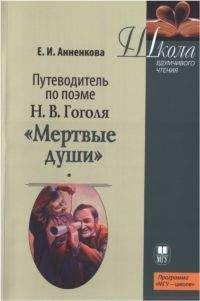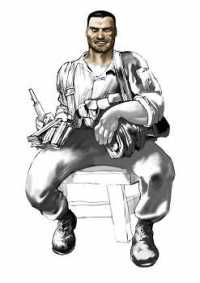Dodie Smith - I Capture the Castle
На сайте mybooks.club вы можете бесплатно читать книги онлайн без регистрации, включая Dodie Smith - I Capture the Castle. Жанр: Прочее издательство неизвестно,. Доступна полная версия книги с кратким содержанием для предварительного ознакомления, аннотацией (предисловием), рецензиями от других читателей и их экспертным мнением.
Кроме того, на сайте mybooks.club вы найдете множество новинок, которые стоит прочитать.

Dodie Smith - I Capture the Castle краткое содержание
I Capture the Castle читать онлайн бесплатно
He laughed and said he knew I'd exposed myself to infection
occasionally.
"But catching things depends so much on one's state of health. You should look in on the church if ever you're mentally run down."
I remembered my thoughts on the way to the village.
"Oh, it wouldn't be fair to rush to church because one was miserable,"
I said --taking care to look particularly cheerful.
"It'd be most unfair not to--you'd be doing religion out of its very best chance."
"You mean "Man's extremity is God's opportunity"?"
"Exactly. Of course, there are extremities at either end; extreme happiness invites religion almost as much as extreme misery."
I told him I'd never thought of that. He helped me to some more
madeira, then said:
"In addition, I think religion has a chance of a look-in whenever the mind craves solace in music or poetry-in any form of art at all.
Personally, I think it is an art, the greatest one; an extension of the communion all the other arts attempt."
"I suppose you mean communion with God."
He gave such a snort of laughter that his madeira went the wrong way.
"What on earth did I say that was funny ?" I asked, while he was mopping his eyes.
"It was the utter blankness of your tone. God might have been a long, wet week- which He's certainly treating us to." He glanced at the window. The rain had started again, so heavily that the garden beyond the streaming panes was just a blur of green.
"How the intelligent young do fight shy of the mention of God!
It makes them feel both bored and superior."
I tried to explain: "Well, once you stop believing in an old gentleman with a beard .. .
It's only the word God, you know-it makes such a conventional noise."
"It's merely shorthand for where we come from, where we're going, and what it's all about."
"And do religious people find out what it's all about?
Do they really get the answer to the riddle ?"
"They get just a whiff of an answer sometimes." He smiled at me and I smiled back and we both drank our madeira. Then he went on: "I suppose church services make a conventional noise to you, too--and I rather
understand it. Oh, they're all right for the old hands and they make
for sociability, but I sometimes think their main use is to help
weather churches- like smoking pipes to color them, you know. If any-
well, unreligious person, needed consolation from religion, I'd advise him or her to sit in an empty church.
Sit, not kneel. And listen, not pray. Prayer's a very tricky
business."
"Goodness, is it ?"
"Well, for inexperienced prayers it sometimes is.
You see, they're apt to think of God as a slot-machine. If nothing
comes out they say "I knew dashed well it was empty"--when the whole secret of prayer is knowing the machine's full."
"But how can one know?"
"By filling it oneself."
"With faith ?"
"With faith. I expect you find that another boring word. And I warn you this slot-machine metaphor is going to break down at any moment.
But if ever you're feeling very unhappy- which you obviously aren't at present, after all the good fortune that's come to your family
recently--well, try sitting in an empty church."
"And listening for a whiff?"
We both laughed and then he said that it was just as reasonable to talk of smelling or tasting God as of seeing or hearing Him.
"If one ever has any luck, one will know with all one's senses--and none of them. Probably as good a way as any of describing it is that
we shall "come over all queer."" "But haven't you already ?"
He sighed and said the whiffs were few and far between.
"But the memory of them everlasting," he added softly. Then we fell silent, both of us staring at the fire. Rain kept falling down the
chimney, making little hissing noises. I thought what a good man he
is, yet never annoyingly holy. And it struck me for the first time
that if such a clever, highly educated man can believe in religion, it is almost impudent of an ignorant person like me to feel bored and
superior about it--for I realized that it wasn't only the word "God"
that made me feel like that.
I wondered if I was an atheist. I have never thought of myself as one, and sometimes on very lovely days I have felt almost sure there is
something somewhere. And I pray every night, though I think my prayers are only like wishing on the new moon -not quite, though: I pray just in case there is a God. (i haven't prayed about my misery over Simon
because I mustn't ask that he shall love me, and I won't ask that I
shall stop loving him--I'd rather die.) Certainly I never felt any
sense of communion with God while praying- the only flicker of that I ever had was during those few minutes I wandered round King's Crypt
cathedral at sunset, and it went off when I heard our head-mistress's voice droning on about the Saxon remains. Sitting there with the
Vicar, I tried to recapture my feelings in the cathedral, but they
merged into the memory of the cathedral-like the avenue I saw when I
was describing Midsummer Eve--and then the cathedral, the avenue, my
love for Simon and myself writing about all these in the attic were in my mind together, each enclosed in its own light and yet each one part of the other. And all the time, I was staring into the Vicar's fire.
I didn't come to earth until the church clock struck the half-hour.
Then I jumped up to go--and got invited to stay and lunch;
but I felt I ought to get back to cook Father his meal.
While the Vicar was helping me on with my raincoat, he asked me to look in at the church in case he had left the vestry window open and the
rain was driving in. Actually, we found the rain had stopped, but he
still wanted the window shut;
he said it was sure to start pouring again, probably just as he was
beginning his after-luncheon nap. He stood watching me as I ran across the churchyard- I gave him one last wave before I went into the church by the little side door. As I closed it behind me, it struck me as
almost funny that he had sent me into a church, even advised me how to get consolation from religion, without having the faintest idea I was in need of it.
The window wasn't open, after all. As I came from the vestry, I
thought: "Well, here you are in an empty church --you'd better give it a chance." I was close to the altar so I had a good look at it. The brasses and the altar-cloth seemed quite extraordinarily meaningless to me. The white roses were fresh but rain-battered;
they had the utterly still look that altar flowers always
have--everything about the altar seemed unnaturally still.." austere, withdrawn.
I thought, "I don't feel helped or comforted at all." Then I remembered the Vicar's nice, fat voice saying: "Sit--listen." He had told me not to pray, and as looking at an altar always seems to turn my thoughts to prayers, I sat on the steps and looked towards the main
body of the church. I listened hard.
I could hear rain still pouring from the gutters and a thin branch
scraping against one of the windows; but the church seemed completely cut off from the restless day outside--just as I felt cut off from the church. I thought: "I am a restlessness inside a stillness in side a restlessness."
After a minute or so, the enclosed silence began to press on my ears--I thought at first that this was a good sign, but nothing interesting
happened. Then I remembered what the Vicar had said about knowing God with all one's senses, so I gave my ears a rest and tried my nose.
There was a smell of old wood, old carpet hassocks, old hymn books--a composite musty, dusty smell; no scent from the cold altar roses and
yet there was a faint, stuffy sweetness around the altar--I found it
came from the heavily embroidered cloth. I tried my sense of taste
next, but naturally it only offered a lingering of madeira and
biscuits. Touch:
just the cold stone of the steps. As for sight- well of course there
was plenty to see: the carved rood-screen, the great de Godys tomb, the high pulpit- which managed to look both particularly empty and slightly rebuking. Oh, I noticed dozens of things, many of them beautiful, but nothing beyond sight came in by the eyes. So I closed them-the Vicar
had said "All senses--and none of them" and I thought that perhaps if I made my mind a blank I have often tried- I once had an idea it was the way to foresee the future, but I never got any further than imagining blackness.
Sitting on the altar steps, I saw a blacker blackness than ever before, and I felt it as well as saw it--tons of darkness seemed to be pressing on me. Suddenly I remembered a line in a poem by Vaughan: "There is in God (some say) a deep but dazzling darkness" -and the next second, the darkness exploded into light.
"Was that God--did it really happen?" I asked myself.
But the honest part of my mind answered: "No. You imagined it."
Then the clock up above boomed the three-quarters, filling the air with sound.
I opened my eyes and was back in a beautiful, chilly, stuffy church
that didn't seem to care whether I lived or died.
The clock made me realize that I was going to be late with Father's
lunch, so I ran most of the way home--only to find that he had helped himself to food (the cold meat looked as if he had carved it with a
trowel) and gone out. As his bicycle was missing, I guessed he had
ridden over to Scoatney. I took a chance on getting my face right in
time for tea and had a very good cry, with cake and milk afterwards;
and felt so much better than I usually do, even after crying, that I
wondered if I really had come by some little whiff of God while I was in the church.
But the next morning, the weight on my heart was the worst I had ever known. It didn't move at all while I got our breakfasts, and by the
time Stephen and Thomas had gone and Father had shut himself in the
gatehouse, it was so bad that I found myself going round leaning
against walls-- I can't think why misery makes me lean against walls, but it does. For once, I didn't feel like crying;
I wanted to shriek. So I ran out in the rain to an empty field a long way from anywhere and screamed blue murder; and then felt quite
extraordinarily silly- and so very wet.
I had a sudden desire to be sitting with the kind Vicar by his fire,
drinking madeira again, and as I was almost half-way to Godsend as the crow flies, I went on, scrambling through hedges and ditches. I kept
trying to think of a good excuse for this second visit--the best I
could manage was that I had been caught out without my raincoat and was frightened of taking a chili--but I was really past minding what the
Vicar or anyone else thought of me, if only I could get to the warm
fire and the madeira.
And then, when I arrived at the vicarage, there was no one in.
I stood there ringing the bell and banging on the door, feeling I could somehow make someone be there, yet knowing all the time that I
couldn't.
"Shall I crawl into the church and wait?" I wondered, coming down the streaming garden path. But just then, Mrs.
Jakes called across from "The Keys" that the Vicar and his housekeeper were shopping in King's Crypt and wouldn't be home until the evening.
I ran over and asked if she would trust me for the price of a glass of port. She laughed, and said she couldn't legally sell me a drink
before twelve o'clock but she would give me one as a present.
"And, my goodness, you need it," she said, as I followed her into the bar.
"You're wet through. Take that dress off and I'll dry it by the
kitchen fire."
There was a man mending the sink in the kitchen so I couldn't sit in
there without my dress; but she bolted the door of the bar and said she would see that no one came through from the kitchen.
I handed my gym-dress over and sat up at the bar in my vest and black school knickers, drinking my port.
The port was nice and warming, but I don't think old country bars are very cheerful places; there is something peculiarly depressing about
the smell of stale beer. If I had been in a good mood, I might have
liked the thought of villagers drinking there for three hundred years; but as it was, I kept thinking of how dreary their lives must have
been, and that most of them were dead. There was a looking-glass at
the back of the bar, facing the window, and reflected in it I could see the wet tombstones in the churchyard. I thought of the rain going
down, down to the sodden coffins.
And all the time my wet hair kept dripping down my back inside my
vest.
However, by the time I finished the port I was less violently
miserable.
I just felt lumpish and my eyes kept getting fixed on things.
I found myself staring at the bottles of creme de menthe and cherry
brandy that Rose and I had our drinks out of on May Day.
suddenly I felt the most bitter hatred for Rose's green creme de menthe and a deep affection for my ruby cherry brandy.
I went to the kitchen door and put my head round.
"Please, Mrs. Jakes," I called, "can I have a cherry brandy? It's striking twelve now, so I can owe you for it without breaking the
law."
She came and got it for me, and after she put the bottle back I could gloat over there being more gone out of it than out of the creme de
menthe bottle.
"Now everyone will think the cherry brandy's the popular one," I thought. Then two old men came knocking at the door, wanting their
beer, and Mrs.
Jakes whisked me and my drink out of the bar.
"You can wait in Miss Marcy's room," she said.
"Your dress won't be dry for quite a while yet."
Miss Marcy has an upstairs room at the inn, well away from the noise of the bar. Ever since she came to Godsend she has talked of having her
own cottage, but year after year she stays on at "The Keys" and I don't think she will ever move now.
Mrs. Jakes makes her very comfortable and the inn is so handy for the school.
As I climbed the stairs I was surprised to find how wobbly my legs
were. I said to myself, "Poor child, I'm more exhausted than I
realized." It was a relief to sit down in Miss Marcy's wicker
armchair--except that it was much lower than I expected; I spilt a
valuable amount of cherry brandy. I finished the rest of it with deep satisfaction--each time I took a sip I thought, "That's one in the eye for the creme de menthe." And then the very confusing thought struck me that generally green is my color and pink is Rose's, so the liqueurs were all mixed up and silly. And then I wondered if I was a little bit drunk. I had a look at myself in Miss Marcy's dressing-table glass and I looked awful- my hair was in rats'-tails, my face was dirty and my
Похожие книги на "I Capture the Castle", Dodie Smith
Dodie Smith читать все книги автора по порядку
Dodie Smith - все книги автора в одном месте читать по порядку полные версии на сайте онлайн библиотеки mybooks.club.


